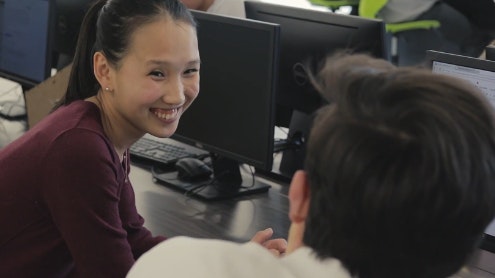Homepage
•
Learning Library
•
Blog
•
Amy Tran Is Creating the School of Tomorrow
Expand breadcrumbs
Expand breadcrumbs
- Learning Library
- Blog
- Amy Tran Is Creating the School of Tomorrow
- Homepage
- •
- Learning Library
- •
- Blog
- •
- Amy Tran Is Creating the School of Tomorrow
Amy Tran Is Creating the School of Tomorrow
By Nicole Krueger
February 23, 2021








